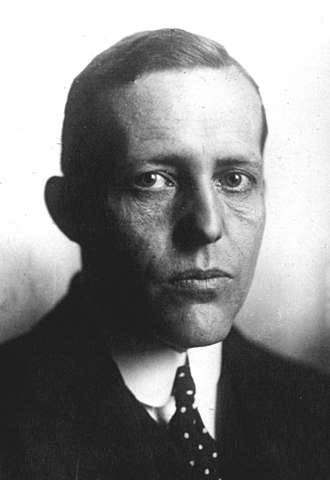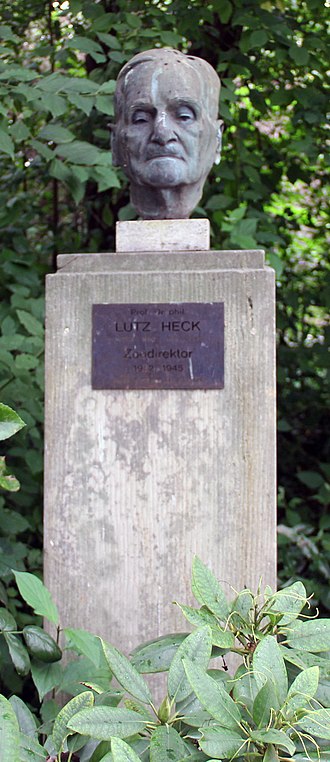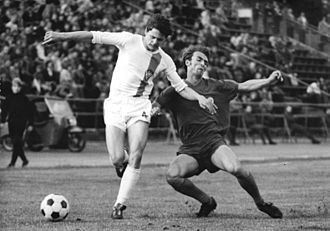Discover Your Roots
SIGN UPDiscover Your Roots
SIGN UPLutz is a gender-neutral German name that carries the powerful meaning of "Famous Battle." It is often used as both a surname and a given name, and can occasionally be a shortened form of Ludwig and Ludger. Renowned individuals bearing the name Lutz include figures from various fields such as sports, science, literature, and politics, demonstrating its diverse appeal and significance. Notable personalities associated with the name Lutz include Austrian figure skater Alois Lutz, Swiss vice-consul Carl Lutz, American writer Gary Lutz, and Italian actress Matilda Lutz. Additionally, the name has been featured in fictional works, including as a character in the 2023 Pixar film Elemental. Lutz encompasses a rich history and represents strength and prominence, making it a compelling choice for individuals seeking a name with a bold and enduring significance.

Johann Ludwig "Lutz" Graf Schwerin von Krosigk, born Johann Ludwig von Krosigk, was a prominent German government official. Serving as the Minister of Finance of Germany from 1932 to 1945, he also assumed the role of de facto chancellor in May 1945. Despite being a non-partisan conservative, he was appointed to the post of Minister of Finance by Franz von Papen in 1932 and continued in that office under Kurt von Schleicher and Adolf Hitler. Throughout his tenure, he and his ministry were involved in the persecution of German and European Jews, including stealing their property and laundering money. Additionally, he held the nominal offices of Foreign Minister and Finance Minister in the provisional government. After the war, he was convicted of laundering property stolen from Nazi victims and financing the concentration camps, resulting in a 10-year prison sentence that was later commuted in 1951. He later pursued a career as an author and publicist until his death on March 4, 1977. Born into a family of traditional Lutheran Protestants, Krosigk studied law and political science at various institutions and served in the German Army during World War I. He was married to Ehrengard Freiin von Plettenberg and had four sons and five daughters.

Alois Lutz, an Austrian figure skater, gained recognition for his performance of the Lutz jump in 1913, which is now named after him. This toepick-assisted jump involves an entrance from a back outside edge and landing on the back outside edge of the opposite foot. It is considered the second-most difficult jump in figure skating, following the Axel. The Lutz jump is scored based on the number of rotations completed, with a successful single Lutz earning 0.60 points, a double Lutz 2.10 points, a triple Lutz 5.90 points, a quadruple Lutz 11.50 points, and a quintuple Lutz 14 points in competitions. The International Skating Union (ISU) defines the Lutz jump as a toe-pick assisted jump with a specific entrance and landing technique. Skaters often find it challenging due to its counter-rotational nature, which requires precise execution. The Lutz jump's difficulty is evident in the fact that many skaters struggle to maintain the required edge, resulting in a "cheated" version called a "flutz." Alois Lutz's contribution to figure skating continues to be celebrated through this iconic jump.

Lutz Pfannenstiel, born on May 12, 1973, is a versatile German figure known for his impactful career as a professional football goalkeeper, coach, scout, and TV analyst. He holds the unique distinction of being the only footballer to have played professionally in all six recognized continental associations. Pfannenstiel's extensive experience and expertise have led him to take on various roles, including serving as a soccer analyst for esteemed television networks such as ZDF, BBC, CNN, ORF, SRF, DAZN, Eurosport, and ESPN. Notably, he currently covers the Bundesliga alongside Derek Rae on ESPN. His notable appointments include serving as the sporting director for Major League Soccer (MLS) side St. Louis City SC, a role he assumed in anticipation of the team's entry into the league in 2023. Throughout his illustrious club career, Pfannenstiel played for an impressive 25 different clubs worldwide, showcasing his skills in countries such as Germany, Malaysia, England, New Zealand, Singapore, United States, Brazil, South Africa, Finland, Canada, Namibia, Norway, Armenia, and Albania. Despite receiving early interest from Bayern Munich, he chose to pursue opportunities with smaller clubs, ultimately achieving a remarkable milestone as the first professional to have played in all six FIFA confederations. Pfannenstiel's influential career also extends to coaching, with notable stints as an assistant coach for the Cuba national football

Ludwig Georg Heinrich Heck, known as Lutz Heck, was a German zoologist, animal researcher, and director of the Berlin Zoological Garden. Born in 1892 in Berlin, he grew up with a deep interest in animals and zoology, which led him to study natural sciences at the University of Berlin. In 1925, he embarked on a collection expedition to Ethiopia to obtain animals for the Berlin Zoo and later went to Canada to obtain bison and moose specimens. Heck is known for his controversial project of reconstructing extinct animals, such as the aurochs, through selective breeding of modern animal breeds. He and his brother, Heinz Heck, attempted to recreate extinct wild animal species based on their knowledge of animal genetics at the time. Heck's involvement with the Nazi party and his close friendship with Hermann Göring raised significant controversy, particularly his support for National Socialism and his role in the pillaging of Warsaw Zoo during World War II. After the war, Heck fled to Bavaria to escape Soviet prosecution. Despite his contributions to zoology, his association with National Socialism has led to debates about his legacy, with a petition in 2015 calling for the removal of his bust from the zoo.

Lutz Eigendorf (16 July 1956 – 7 March 1983) was a talented German professional footballer known for his remarkable career and infamous defection to the West. Born in Brandenburg an der Havel, East Germany, Eigendorf's football journey began with BSG Motor Süd Brandenburg before joining BFC Dynamo's youth academy, where he showcased his exceptional skills. He made significant contributions to the East Germany national football team, earning six caps and scoring three goals.Eigendorf's daring defection during a friendly match in West Germany led to a ban from playing for a year by UEFA. Despite this, he continued his football involvement as a youth coach with 1. FC Kaiserslautern. His decision to defect had severe consequences for his family, as his wife and daughter faced constant police surveillance, ultimately leading to a divorce arranged by the Stasi.Tragically, Eigendorf's life was cut short under suspicious circumstances in 1983 when he suffered a fatal traffic accident. Despite public speculation and investigations into the involvement of the Stasi, the case was closed in 2004 due to lack of concrete evidence. The unresolved nature of Eigendorf's death has led to ongoing suspicions and public interest in the events surrounding his tragic end.Lutz Eigendorf's life and legacy continue to be a subject of fascination and controversy, with his story serving as a poignant reminder of the complexities and challenges faced by individuals
All images displayed on this page are sourced from Wikipedia or Wikimedia Commons.We use these images under their respective Creative Commons or public domain licenses. Wherever applicable, author attributions and license information are provided. If you believe an image is used incorrectly or outside its license terms, please contact us so that we can review and correct the issue.